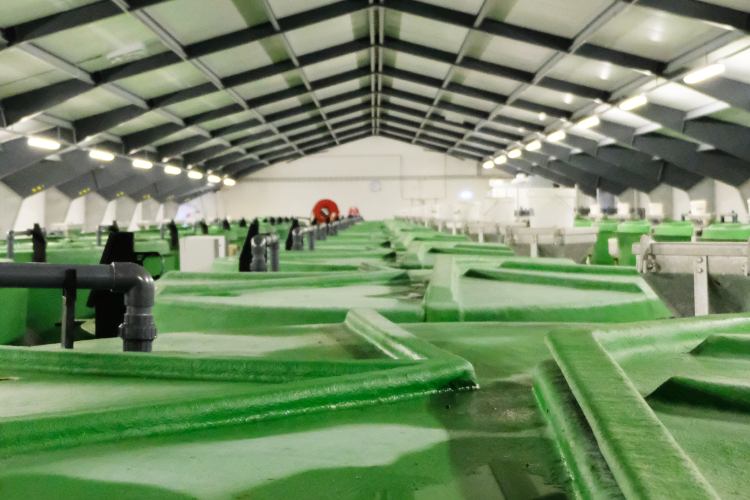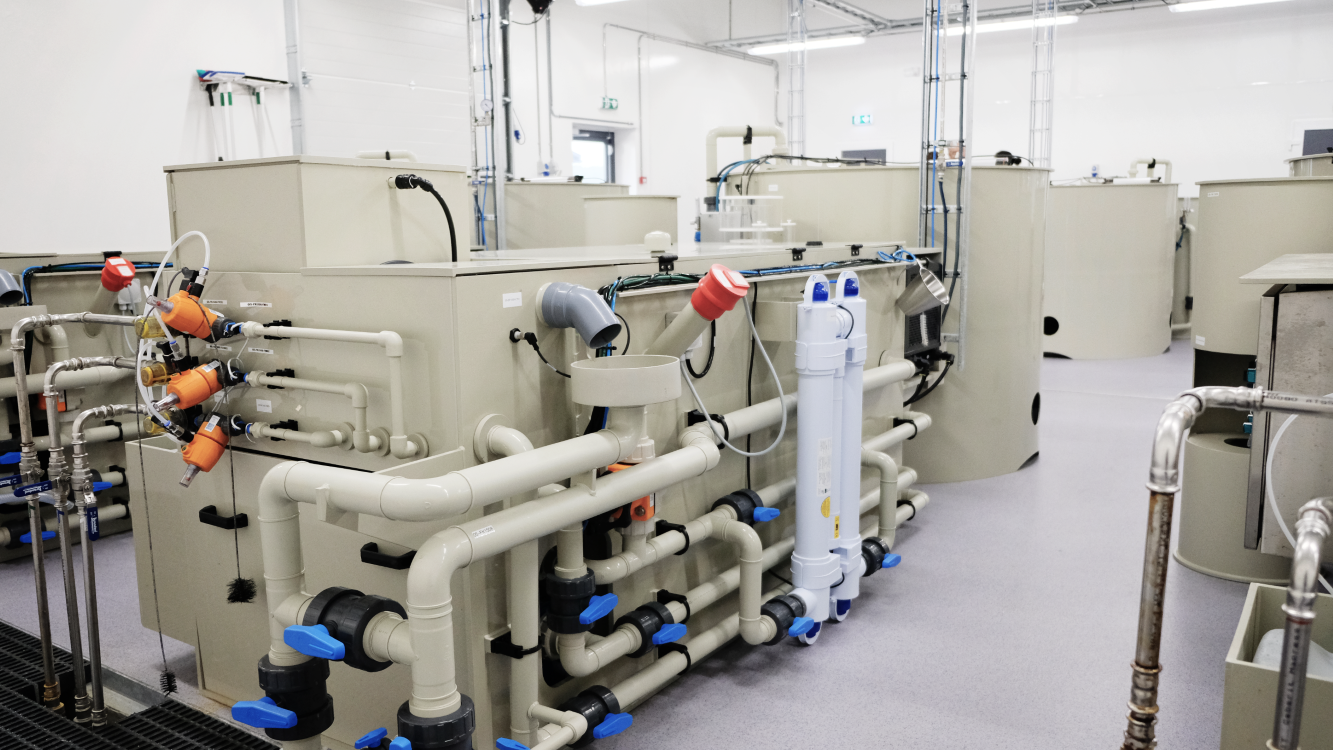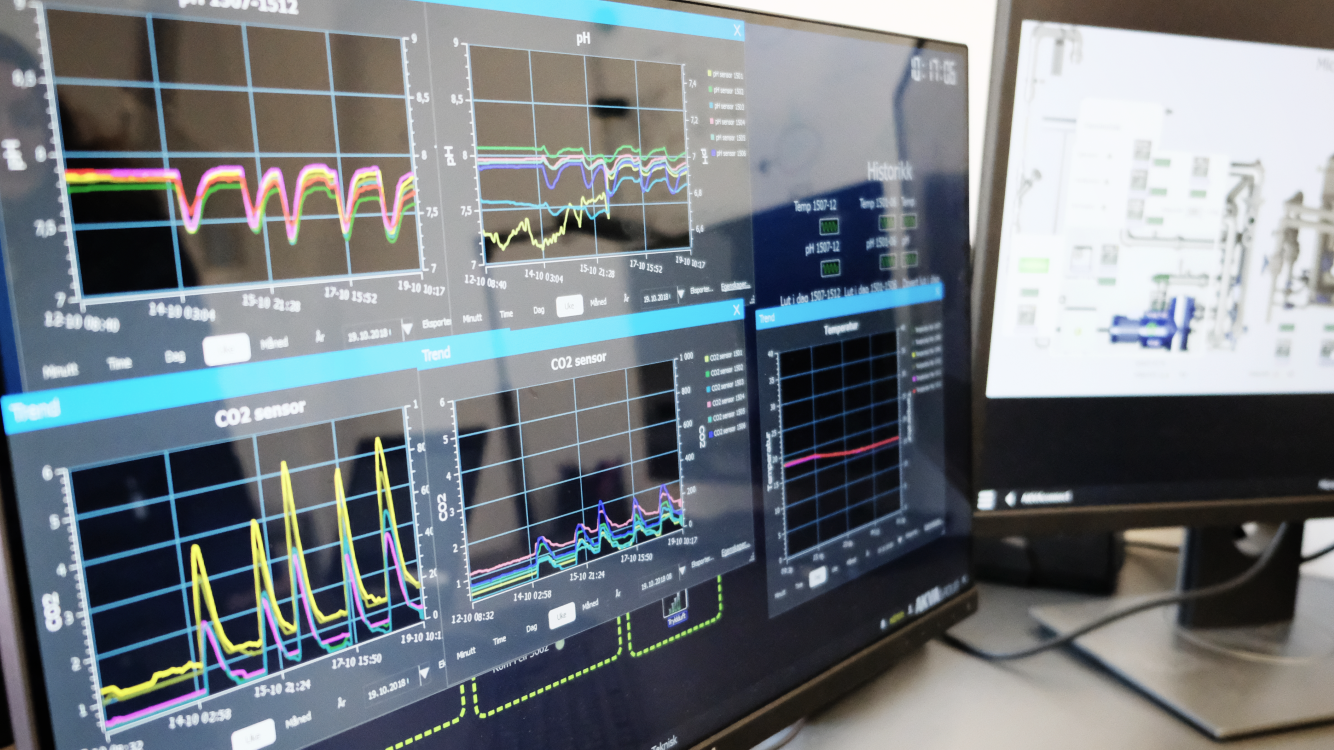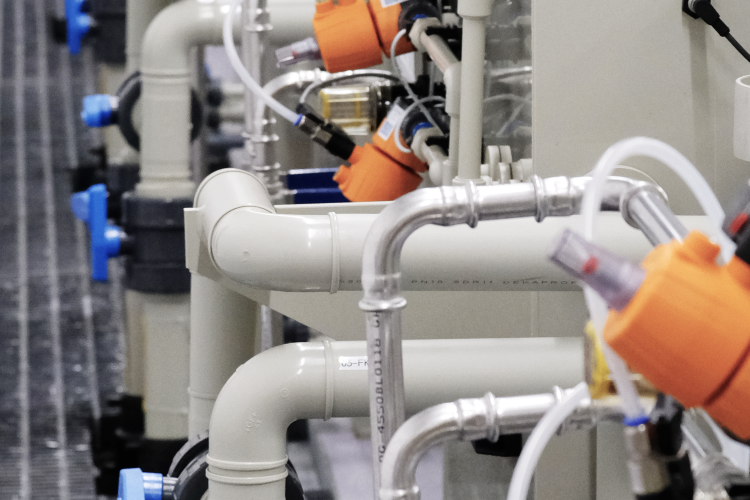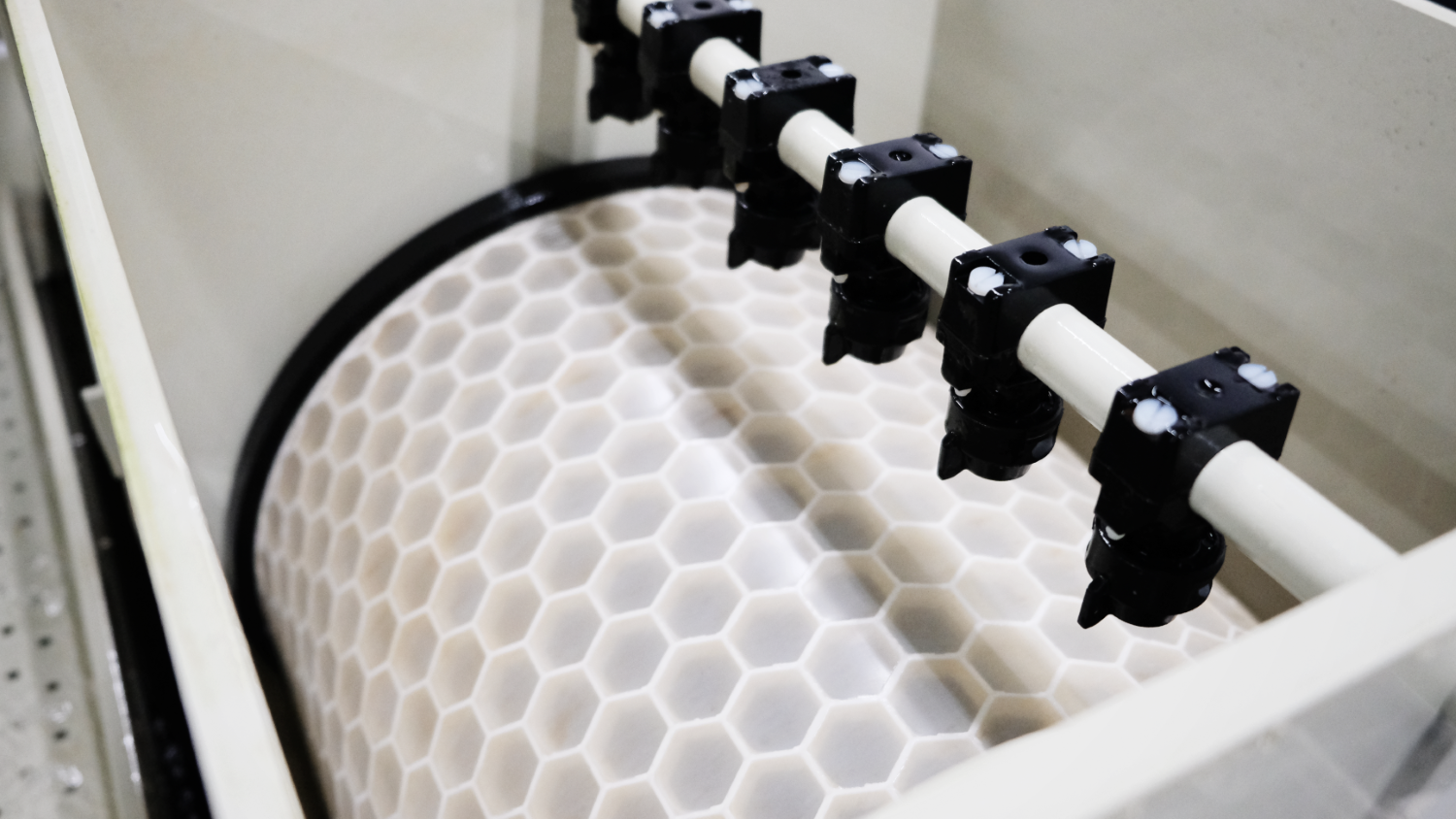Optimal diets for optimum water quality
RAS come with their own unique challenges, one of the most critical being consistently maintaining optimum water quality. This requires organic matter (in both particle and dissolved forms) excreted by the species to be efficiently removed by the system. Efficient treatment equipment in RAS is essential, and in addition, fish feed can play an important role in waste and water management, while also affecting growth, FCR, product availability and fish health. It is imperative to only use optimal diets to not just decrease the total waste output, but also improve faecal stability. In other words, with optimal diets, a smaller quantity of faeces will be excreted by the fish, and a higher proportion will be removed by physical filtration.
What we offer for closed aquaculture systems
Achieving a healthy and sustainable production is dependent on knowledge about feed and a comprehensive understanding on fish quality, feeding equipment, sludge handling, and water quality. This is something we have specialised in at Skretting, and we recommend our CAS and RAS clients to use RCX feeds that ensure consistent structural integrity through a certified quality assessment.


